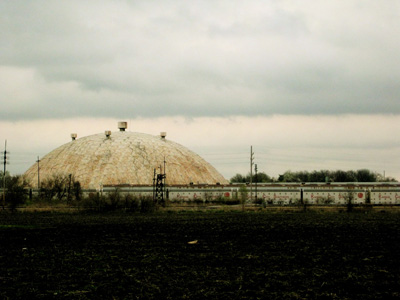 When a citizen dies abroad, their body is sent home in the cargo-hold of a commercial jetliner along with suitcases stuffed with beachwear, woodcarvings from the tourist stalls, and souvenir bottle-openers shaped like elephants. A coffin is just another piece of baggage. At the airport, a Consular Affairs Officer, Mr. R—, fills out the customs forms that the deceased cannot fill in for himself. In the event of the death of a citizen abroad, the government provides services that they would not on native soil, unless one dies a criminal, a ward of the state, or a John Doe.
When a citizen dies abroad, their body is sent home in the cargo-hold of a commercial jetliner along with suitcases stuffed with beachwear, woodcarvings from the tourist stalls, and souvenir bottle-openers shaped like elephants. A coffin is just another piece of baggage. At the airport, a Consular Affairs Officer, Mr. R—, fills out the customs forms that the deceased cannot fill in for himself. In the event of the death of a citizen abroad, the government provides services that they would not on native soil, unless one dies a criminal, a ward of the state, or a John Doe.
Mr. R— works at the High Commission in an African city where security guards check underneath his jeep with a mirror before they let him through the gates. His job also brings him to the hospital, the prison, the courts, and the morgue where he offers his ministrations to his countrymen who are wounded, in custody, or dead.
One of the dead tumbled from the sky and crashed into the jungle-cloaked mountains where the chimpanzees live near Lake Tanganyika. No human eyes watched the five-seater Cessna’s doomed descent, but species of weaverbirds that haven’t been named yet watched the great white bird fall and burn on a Sunday at the beginning of the rainy season. A rescue crew arrived at the crash-site at first light on Tuesday, but the rumor is that the scavengers, avian and otherwise, had arrived first. The citizen was the pilot, a natural stick-and-rudder flyer, and far from his hometown of Montreal.
One of the dead was found in a hotel room with a view of Dar es Salaam’s inner bay where pleasure boats studded the rippling, black fabric of the sea. Venus hung garishly bright above the horizon even among the milky light-pollution that rose off the city. Earlier that night, he’d been drinking at the bar below his own window where a wooden balustrade separated the hotel from a narrow strip of beach. A hand-painted sign warned guests of the dangers of the beach—muggers, con-men and hustlers—but for the citizen, peril came from within. It was inside the bar that he was slipped a mickey, and as he sipped it from his sweating glass, the drug traveled to his stomach, through his blood stream, and, finally, fatally, into his brain.
One of the dead was lost off Pembe island swimming with parrotfish, angelfish, a variety of butterfly fish and other aquatic creatures that borrow the names of ones with wings. He jumped off the side of a dive boat and then he was gone. Much grim conjecture came after the disappearance: sharks were suggested as dubious but sensational villains, but most likely the man was just pulled by a strong current beyond where the boatman could see him, hid by the curve of the earth. The ocean took him into her embrace and when he tried to breathe her, she refused him like the estranged mother that she is to all of us.
Mr. R— knows these men from their personal effects—their passports, toothbrushes, and paperback novels—which he repacks with his own hands into their suitcases and sends to their next of kin. He knows them as their names on police reports, bar receipts, and flight manifests. He knows them from the treble of their mothers’ voices over the telephone with the hiss of half the world and seven time zones on the line. He knows the weight of them inside their boxes. (Except the scuba diver who was never found; for him all Mr. R— sent home was paperwork.) And if he resembles the reaper, it is only due to his professionalism: his dispassionate, painstaking, and necessary service to the dead. For those for whom a conveyor belt into the belly of an airplane is the only pallbearer, the civil servant is the boatman over the river Styx who takes us from the earth to the underworld.
I look for the dead among my fellow travelers—along the malarial coast, the dry riverbeds of the inland desert, the coral islands without electricity—and I wonder if the same siren song draws us here. And who among us would choose Mr. R— as our final custodian, invite him to repack our backpacks for us, and whisper to him the names of our abandoned loves, if it meant we could live free?
—
Sierra Bellow was a Henry Hoyns Fellow at the University of Virginia where she earned her MFA. In 2008, she lived in Dar es Salaam, Tanzania.
photo by Sarah Truckey
